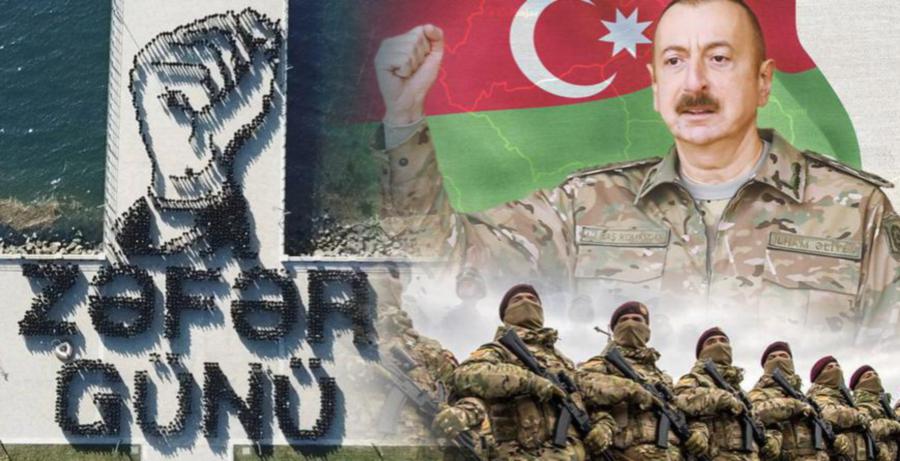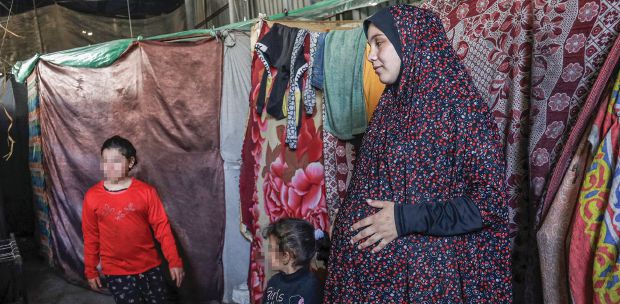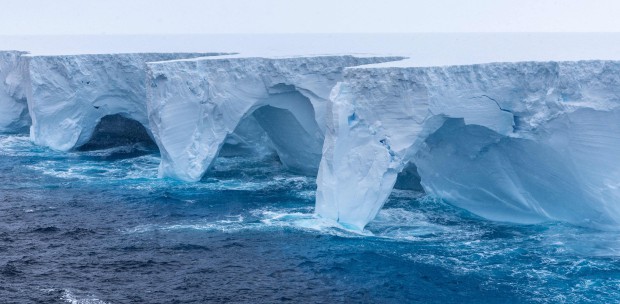WHAT does it mean to be patient in the face of injustice?
First of all, it means not accepting the injustice that has been done. It means never making peace with injustice. This is believing that injustice cannot continue.
Being patient also means never making concessions to those who do injustice and who make it happen. It means believing that the unfair situation will end one day.
Patience means working with determination and effort arising from this strong belief. Patience means resisting injustice properly. Patience means being able to overcome obstacles on the path of the struggle properly.
This is exactly what Azerbaijan did for nearly 30 years. To be patient, but to be patient by working with determination and effort. To properly punch down the Iron Fist on the invader's head at the right time, in the right way.
Armenia's occupation of Azerbaijani lands in the early 1990s, the massacres it committed in the occupied regions, and its illegal activities in those regions after ethnic cleansing are serious crimes in international law. Armenia committed these crimes not alone, but together with those who encouraged it.
It was able to carry out inhuman activities despite four binding resolutions of the United Nations (UN) Security Council. It had been able to maintain the illegal situation by ignoring the decisions of important international organisations and institutions such as the UN General Assembly, Organisation for Security and Cooperation in Europe, Organisation of Islamic Cooperation, Organisation of Turkic States, Council of Europe, Non-Aligned Movement, European Court of Human Rights, the North Atlantic Treaty Organisation, and Organisation for Democracy and Economic Development.
On the other hand, the Azerbaijani side has continued on its way, without compromising its peaceful attitude, by being patient in the face of double standards and most importantly, the OSCE Minsk Group trio's reluctance.
A visionary governance is essential for the development of a country's human potential and underground and surface resources. In other words, if there is no management with strategies that can produce rational policies, all available resources can be wasted.
In this context, the political vision of national leader Heydar Aliyev and incumbent President Ilham Aliyev is of great importance for the continued existence and development of the Republic of Azerbaijan.
Important steps have been taken by the Azerbaijani government, such as economic breakthroughs, the successful implementation of socio-economic development programmes, activities in the field of education, the systematisation of the state administration and the modernisation of the National Army.
Energy, renewable energy, international communication-transportation, defence industry and agriculture strategies of the Republic of Azerbaijan, which will cover many years, have been created and are being implemented successfully.
Azerbaijan started to implement global projects during the 'patience' process. In 2006, the Baku-Tbilisi-Ceyhan oil pipeline started operating. Azerbaijan began to benefit from its own wealth. Shortly after, the Shahdeniz natural gas field was discovered and the Baku-Tbilisi-Erzurum natural gas pipeline was built.
The Southern Gas Corridor, TANAP and TAP projects, which play an important role in Europe's energy security, have been successfully implemented. The Baku-Tbilisi-Kars railway, which connects Asia and Europe and is very beneficial in terms of time and cost, became operational.
Azerbaijan has resolutely implemented globally important projects in the field of transportation on the North-South and East-West routes. These economic breakthroughs brought about huge developments in the educational and military fields.
For years, students sent by the Republic of Azerbaijan abroad for education returned home and served their own country. The Armed Forces of the Republic of Azerbaijan were now considered one of the most modern in the world in terms of both training and equipment.
Azerbaijan achieved all these with its human potential and material resources.
The Armenian side had further hardened its destructive attitude in order to undermine the negotiations on the occupation issue, which continued for nearly 30 years. We can list some examples in this regard:
1. Armenia's newly elected Prime Minister Nikol Pashinyan used the expressions "Karabakh is Armenia. And DOT" in one of his speeches;
2. Armenian Defence Minister David Tonoyan said openly in one of his speeches that "A new war is needed to occupy new regions of Azerbaijan";
3. Pashinyan demonstrated his stance once more by sending his son to the occupied regions of Azerbaijan for military service; and
4. Pashinyan put forward "7 conditions" that are unacceptable to Azerbaijan, for the normalisation of relations between the two countries.
Many other negative situations caused by Armenia brought the negotiation process to a halt. The roads were finished, the hopes of diplomacy were exhausted, international law and justice were demonstrably murdered.
The Armed Forces of the Republic of Azerbaijan were waiting for the order of the president.
National leader Heydar Aliyev's words "There can be no Karabakh without Shusha city, no Azerbaijan without Karabakh" were now perceived as an order to every Azerbaijani citizen, especially President Ilham Aliyev. It took 44 days to end the 30-year occupation by Armenia. The Armenian army announced a record of more than 10,000 desertions .
With the 44-day Patriotic War, the Azerbaijani Armed Forces implemented the four resolutions of the UN Security Council (822, 853, 874 and 884), and relevant resolutions of the UN General Assembly, Organisation of Islamic Cooperation, Organisation for Security and Co-operation in Europe, Non-Aligned Movement, Organisation of Turkic States, the North Atlantic Treaty Organisation, Organisation for Democracy and Economic Development, Council of Europe that were demanding the complete, immediate and unconditional withdrawal of the Armenian occupation forces from the occupied Azerbaijani territories, and calling for the resolution of the dispute based on the norms and principles of international law.
On Nov 8, 2020, the Azerbaijani Armed Forces stopped military operations. Victory did not come by itself, Azerbaijan won this Victory with its own efforts and resources. Many military training institutions and experts around the world are trying to research and understand the 44-day Iron Fist Operation of the Azerbaijani Armed Forces. This Victory is the result of patience, perseverance and determination.
The writer is deputy head of mission of the embassy of the Republic of Azerbaijan in Malaysia





